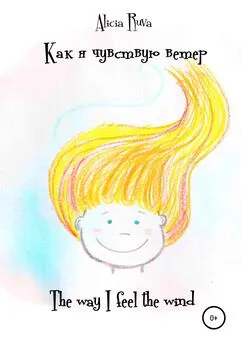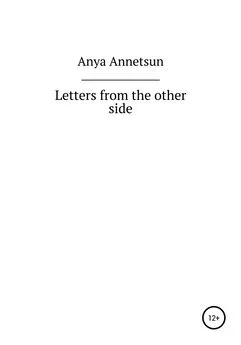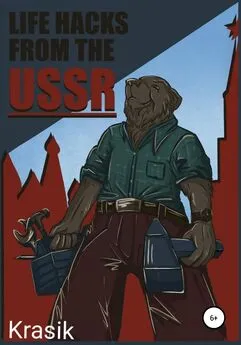Зинаида Лонгортова - Khon Yush. Way From the Ob
- Название:Khon Yush. Way From the Ob
- Автор:
- Жанр:
- Издательство:неизвестно
- Год:2020
- Город:Moscow
- ISBN:978-5-00153-231-6
- Рейтинг:
- Избранное:Добавить в избранное
-
Отзывы:
-
Ваша оценка:
Зинаида Лонгортова - Khon Yush. Way From the Ob краткое содержание
Khon Yush. Way From the Ob - читать онлайн бесплатно ознакомительный отрывок
Интервал:
Закладка:
Zinaida Viktorovna Longortova
Khon Yush
© Z. Longortova, 2020
© International Union of writers, 2020

Zinaida Viktorovna Longortovawas born on June 22, 1962 in the village of Kushevat, Shuryshkarsky district, Yamalo-Nenets Autonomous Okrug, Tyumen region. She studied at Gorkovskaya high school.
Graduated from Salekhard Pedagogical College named after Anatoly Zverev in 1983, speciality: «Primary School Teacher».
Graduated from Herzen University, St. Petersburg, in 2000, speciality: «Cultural Expert», «Teacher of History».
Now works in «Yamal-Region» State Television and Radio Company as a senior editor of the RPNS editorial board. She is the author of «Northern Color», a program in Russian, and programs in the Khanty language like «Tut Sultam». Since 2007, the programs «Teacher of the North» and «Inspiration» were published.
Yamal residents know her well as a publicist. She has published several books with the support of the Department of Indigenous People and «Yamal Writers»: «Monsyan mov. The Land of Fairy Tales», essay «The Teacher of the North», novels «Near the Bluewater Ob», «Sun Glare of Birch Bark», «Near the Fish Priver, On the Deer's Ground», «Imi Khily», «Ovas muvem schcashchty syit». In 2019, she published her first novel «Khon Yush. Way from the Ob».
Her works were included in the anthology of writers of the Yamalo-Nenets Autonomous Okrug and Khanty Literature of the Khanty-Mansi Autonomous Area.
She was published in magazines like Yamal Meridian, The Northerners, The World of the North, in the newspapers Khanty Yasan, Luh Avat, and Red North. She writes stories in Khanty and Russian.
Zinaida Viktorovna is a laureate of international, Russian, district television and literary contests for books, documentaries and feature films between 1990–2019, as well as a winner of a special prize of the Governor of Yamal for creating, preserving and promoting cultural values of indigenous small peoples of the Far North in 2019.
She has been repeatedly awarded with different diplomas and certificates. Veteran worker, writer, member of the Union of Journalists of Yamal-Nenets Autonomous Okrug and of Russia, Honored Worker of Culture of Yamal-Nenets Autonomous Okrug, master of decorative and applied art of Yamal-Nenets Autonomous Okrug.
In 2007, the «Wedding Argish», a movie in Khanty language was created depicting the worldview of the Khanty people. The film took second place at the Golden Tambourine International Television Competition in Khanty-Mansiysk. It also took 3rd place at Tyumen regional competition «White spots of Siberia». She was awarded a 3rd degree diploma in Murmansk at the international television competition «Northern Character» for professionalism and dedication to her topic.
In 2018, work was completed on the first movie in Khanty language about the Khartaganov family, which saved seven orphans during the Great Patriotic War. The film «Khon Yush. Way from the Ob» received Gazprom Neft prize «For the Preservation of Cultural Traditions in 2019», as well as Grand Prix for documentary films at the International Cheboksary Film Festival and a special prize «For the Work of Life» at the Chukotka Film Festival «Golden Raven».
She is actively working in the public movements of the district: she is a member of the Union of Journalists of Yamal and Russia, member of the city association «Yamal To Its Descendants!», member of the national cultural autonomy of the Khanty «Pulngavat», member of the international movement of writers AFUL. Member of the jury of the literary competition of readers «Melodies of the Arctic Circle» as part of annual «Rugin Readings», member of the jury of the district folk competition; member of the jury of the interregional competition on local history and mother tongues of the Department of Education of the Yamal-Nenets Autonomous Okrug GAU DPO. Often meets with residents and students of educational institutions in Salekhard, Labytnangi, Novy Urengoy, Noyabrsk, Gubkinsky, Khanty-Mansiysk District and students of the district schools.
1937
Special Resettlers
On a cloudy September morning, a steamboat with a barge loaded with special settlers from Tyumen, Omsk, Tobolsk and Ishim approached the wooded side of the Ob River.
The dispossessed settlers sat or lay on the iron bottom of the barge. Putting on all the clothes, they rolled themselves into a ball from cold, trying to preserve the last warmth. These people did not even know where they were going to. They could only guess by the cold that was getting more severe every day: the dank autumn stain penetrated to the very bones. The river kept on carrying their barge towards the icy Kara Sea. They traveled along the Tyumenka, the Irtysh, the Tobol, and for many days along the mighty river Ob, which was high as the sea.
Some people left two days ago in the village of Kushevat, spread out on three hills in a cozy quiet channel. This time, those who went through many repressions, apparently, had to huddle along the Ob River, open to all the northern storms. According to the lists that the authorized NKVD officer read yesterday, some people were taken to the next settlement, Shuryshkara.
From 1917 to 1922, the Civil War was going on in Russia. Various classes and social groups of the Russian Empire fought for power. Striving to achieve their political goals, Opponents of Bolshevism united in large groups to overthrow Soviet power.
With the support of foreign states, they violently destroyed the working-peasant class, which actively supported the Bolsheviks. The losses of the Red Army and the civilian population were estimated at more than thirteen million.
In 1930s, the desire of the leadership of the Bolshevik party to implement the ideas of the world revolution led to many decisive actions. Stalin felt the danger and took radical measures before the Great Patriotic War.
March 1937 went down in the history of the country as the beginning of the «great terror», which became the highest point of repressive politics, the peak of political repression in the Soviet Union.
From February 23 to March 5, 1937, the Plenum of the Central Committee of the All-Union Communist Party of Bolsheviks was held, at which Joseph Stalin made a keynote speech «On the Shortcomings of Party Work and Measures to Eliminate Trotsky ist and Other Deceivers». He said: «…the more we move forward, the more success we have, the more the remains of the broken exploiting classes become embittered, the sooner they go to more acute forms of struggle, the more they harm the Soviet state, the more they clutch for the most desperate means of struggle as the last means of the doomed.»
The main enemies of the Soviet state were Trotskyists, who, according to Stalin, turned into «… an unprincipled gang of pests, saboteurs, and spies employed by some intelligence agencies.» «In the fight against modern Trotskyism» he called to use not the old methods, not the methods of discussion, but the new methods, the methods of uprooting and destruction.
The NKVD of the USSR had a clear goal: to destroy «enemies of the people.»
On July 2, 1937, the Politburo Resolution «On Anti-Soviet Elements» was issued.
All repressed people were divided into two categories according to the measure of punishment. Those assigned to the 1st category were expected to be executed, while the 2nd category was left for imprisonment in camps for a period of 8 to 10 years.
The NKVD punishing sword was supposed to hit numerous enemies, regardless of their location. Everyone who continued to «conduct active anti-Soviet subversive work,» wherever they lived: in a village, a city, on collective farms, state farms, were expelled with confiscation of property. All «hostile elements» were recorded and repressed.
Having accepted all their property, livestock and agricultural products on the forms of exchange receipts, they took special settlers to various regions of the Soviet Union for labor settlements as directed by the NKVD, including the Omsk Region, which included the Shuryshkarsky District in 1937. It was renamed from the Ostyak-Vogul to the Yamalo-Nenets National District.
The guards ordered the arrivals to leave the barge ashore. Men, women and children straightened up in hope that they might survive on this unknown land, emerged from the river fog onto the rocky river banks.
«Though it's north, look how beautiful it is!»
Arriving guests admired the cheerful autumn colors of a rare forest. Exhausted by a long road, the settlers studied their new refuge with excitement.
«It's not that bad: if we die on the ground, they will not throw us into the river,» two women talked among themselves. «The river is so wide and fast. So many corpses were thrown on the road. Where did it take them?»
«You won't find them now!»
«Yes. And who's going to search?»
«Look! There are people on the hill!» one of the arrivals shouted. Everyone looked at the hillock, where the girl pointed. Indeed, there were locals, carefully looking at strangers. Their faces, stature and unprecedented clothes embroidered with patterns were very different from the guests.
A little higher, behind a long sandy shore, on a small hillock among the taiga wilderness, the Khanty village of Pitlourkurt hid.
«Maybe we'll survive. After all, people live here.»
«I know,» the boy intervened. «These are the Khanty. I read and they said at school that below the city of Tobolsk, along the river Ob, there were lands of the Khanty people, and the Nenets are closer to the Gulf of Ob.»
«Or maybe they are not Khanty or Nenets at all?» suggested his mother, restlessly holding the talkative boy. «Although you know everything, you are here for the first time.»
«No,» the boy objected. «We were not taken to the ice of the Gulf of Ob, to the tundra. It's the forest tundra, which means we are in the territory where the Khanty live.»
«Stop talking!» shouted the escort.
«Hush, look!» whispered the woman who was just talking animatedly. «I hope they don't hurt her».
A young pregnant Tatar shrank under the cries of the guards wearing the NKVD uniform and hurried to the shore, bent double.
«Look, the girl survived and got to the ground.»
«Everything mixed up in this world! Why are we punished? Why is this girl tormented?»
«I had only one cow and I'm here for it now. They say I'm a kulak…» a woman said, exhausted to the extreme. She became even thinner over the journey, and it seemed that her skeleton was covered with thin skin, which was about to tear. Her eyes shone with kind and quiet light.
«And I always had a good household,» her friend straightened in misfortune, remembering the past prosperity. «It's painful for people to look at someone else's good, and here we are destitute.»
The second woman did not get thinner during the long journey. She squinted her eyes and looked evilly at the escorts and strangers. Everything annoyed her. She seemed angry at the whole world.
The arrivals moved to the shore in a row.
«Faster!» Shouted the guards. «Hurry up!»
People silently looked around. They carried ashore the bodies of those who got frozen at the barge that night. The guards hastily distributed shovels among the settlers – to dig holes for the graves. They buried the dead, leveled the land, and drove people higher up the hill.
Читать дальшеИнтервал:
Закладка:
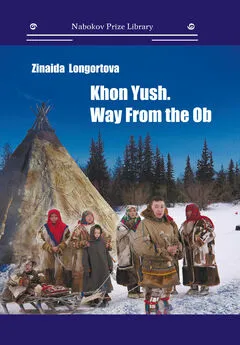

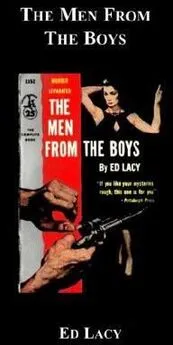
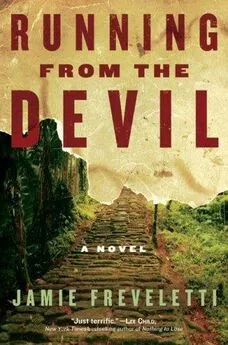
![О Генри - С высоты козел [From the Cabby's Seat]](/books/1083418/o-genri-s-vysoty-kozel-from-the-cabby-s-seat.webp)
